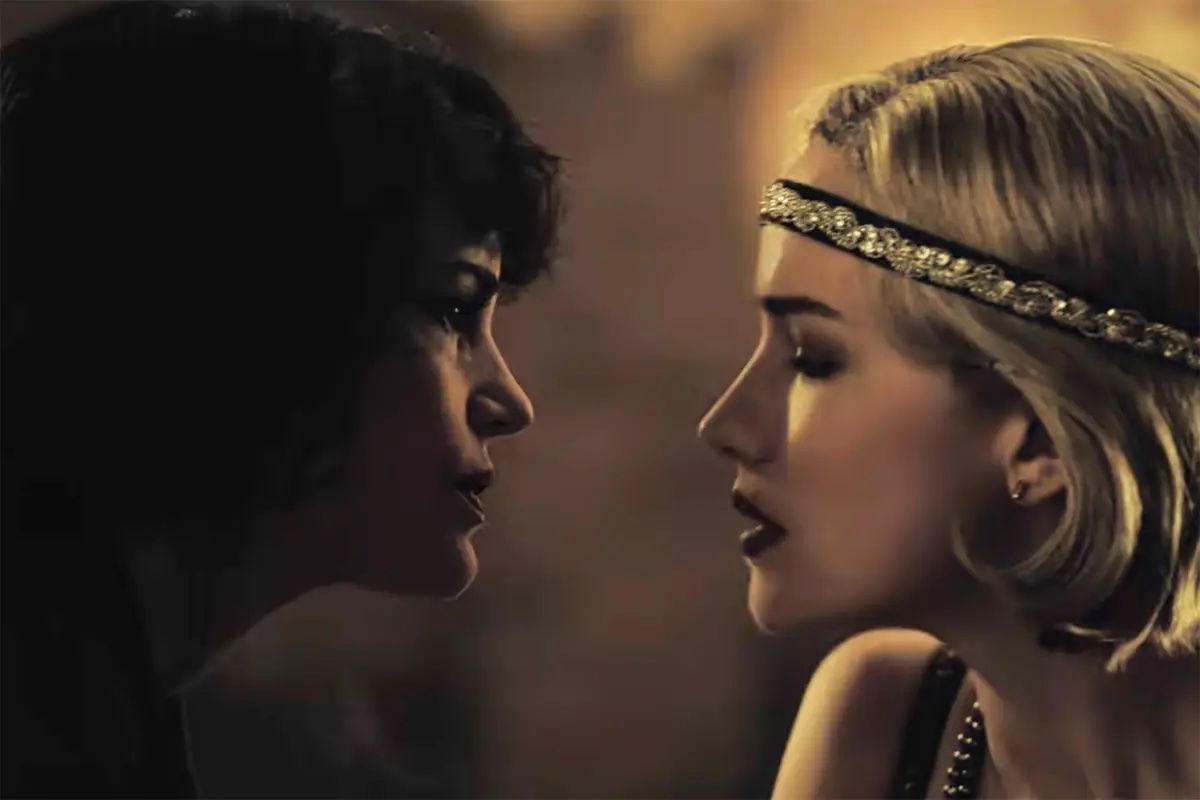
The Fall of the House of Usher — Episode 5 Recap
- Oct 19, 2023
In Episode 5 of "The Fall of the House of Usher," viewers are catapulted into a mesmerizing blend of timelines as Roderick Usher unfolds a layered tale to Detective Charles, stretching across moments of poignant vulnerability, eerie hallucinations, and complex relational dynamics.
The episode vibrantly kicks off with a New Year’s Eve scene where Roderick engages in a spirited discussion with Verna about the symbolic significance of ravens. While Roderick views them as harbingers of doom, Verna perceives them differently, offering a unique counter-perspective. Soon, they're interrupted by the sound of police sirens, which alert both Roderick and Madeline, who had been enjoying a lively dance.
A character-contrast is presented as Madeline and Roderick navigate through the festive environment. When Verna prompts Madeline to choose between fame and wealth, her response hinges on a desire for immortality, highlighted by her whimsical New Year's kiss. Concurrently, Roderick shares an intimate moment with a stranger, subtly planting seeds for the impending investigation into his relationship with Annabel.
When Detective Charles probes Roderick about his marriage in the current day, the audience is briefly transported to a funeral service for Napoleon, Camille, and Prospero, all grieved by the surviving Ushers. Soon after, Roderick’s recurring, disconcerting hallucinations re-emerge, depicting a scorched Prospero and a jester fool, which distress him sufficiently to warrant assistance from Madeline and his spouse, Juno.
Dialogues between Victorine, Tamerlane, and Frederick unfold, uncovering layers of tension and conflict, especially revealed through Victorine’s visceral reaction to Frederick’s and Tamerlane’s hubris. Then, viewers are ushered into a hospital scene with Frederick demanding to bring his wife, Morella, home. Once successful, he entrusts her care to his daughter, Lenore, hinting at the complicated familial relationships interwoven through the narrative.
Tension escalates as Victorine engages in a fiery argument with Alessandra, having betrayed her trust by forging her signature on a document related to an experimental heart gadget. Their relationship crumbles amid heated words and actions, and desperate pleas left on voicemail, introducing a subtle foreshadowing with Victorine experiencing auditory hallucinations of heartbeats and ticking.
An unexpected twist arrives as Verna, under the guise of a patient, visits Victorine. Amidst Victorine’s distraction due to the unsettling sounds, Verna cryptically expresses her readiness for a procedure, pending Alessandra’s approval. Simultaneously, the story weaves through a court scene where Pym successfully convinces a judge to delay a trial concerning the Usher family, despite Charles’s objections.
Duality and deception weave through as Roderick, confronting Charles about a supposed informant, learns it was a fabrication aimed at disturbing the Usher household’s fragile peace. He manages to alleviate Charles's self-reproach with empathetic reassurances and subtly references his own battles with guilt and hallucinations, revealing blood where Charles’s heart should be.
The narrative recoils back in time, presenting Madeline and Roderick strategizing against Rufus Griswold, revealing intimate vulnerabilities and simmering conflicts, and then fast-forwards, showing Madeline’s attempts to recall a bartender to Roderick, and voicing her concerns about Verna to Pym.
Dynamics shift to Tamerlane and her spouse, Billy, embroiled in a heated dispute over suspected infidelity with Candy, exposing the emotional and physical strains within their relationship.
Roderick’s existential conflict comes to the forefront, with self-harm and contemplation of suicide following the unveiling of Verna's dubious parentage. When he later visits Victorine, both are plagued by rhythmic auditory hallucinations, culminating in a shocking revelation of Alessandra’s corpse linked to the experimental heart device. Victorine’s mental collapse precipitates her own tragic end, leaving Roderick shattered.
Nodding toward Edgar Allan Poe’s works, including "The Fall of the House of Usher," "The Tell-Tale Heart," and "The Premature Burial," the episode masterfully intertwines rich imagery, auditory illusions, and emotional depth, providing a beautifully haunting rendition of classic literature.
Victorine, pivotal in "The Tell-Tale Heart," navigates through the episode as both a narrator and an essential player, providing an intriguing parallel to Poe’s tales. The recitation from Poe's "Spirits of the Dead" during the funeral services underscores the depth and dark beauty of the narrative.
The execution of iconic auditory elements from "The Tell-Tale Heart" induces a palpably haunting atmosphere, mimicking the short story's chilling crescendo and Victorine's descent into madness, driven by guilt-associated auditory delusions. Visual elements, like blood-stained hands and hallucinations, also draw eerie parallels with literature and psychological symbolism, amalgamating into a brilliantly eerie episode that beautifully synthesizes and pays homage to Poe's legacy.







